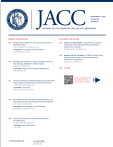The Journal of the American College of Cardiology (JACC) has retracted a recently published paper that questioned the effectiveness of a treatment for irregular heartbeat, against the last author’s wishes.
Andrea Natale, the study’s last and corresponding author and Executive Medical Director of Texas Cardiac Arrhythmia at Austin, took to social media today to express his frustration in the retraction of the July paper, which showed electrical rotors were less effective at fixing irregular heartbeat than other treatments. On Twitter, Natale implied industry played a role in its demise.
However, according to the retraction notice, the paper was felled by problems with randomization; Natale has admitted that some patients were removed from the analysis after one center included them incorrectly.
Here’s the retraction notice for “Impact of Rotor Ablation in Nonparoxysmal Atrial Fibrillation Patients Results From the Randomized OASIS Trial:”
This article has been retracted at the request of the JACC Editor-in-Chief, its Editorial Board, and the JACC Ethics Board for the following reasons:
In the title and multiple times in the article, the study is referred to as a “randomized trial” but deviation from a random allocation of subjects to treatments across sites and the imbalance introduced by a non-random “randomization error” were not disclosed in the manuscript.
Registration with ClinicalTrials.gov was not completed before patient enrollment began.
The study used rotors from a company called Topera, which was acquired by the firm Abbott in 2014.
Natale told us he believes the company played a role in retracting the paper, and expressed his views on Twitter:
https://twitter.com/andreanatalemd/status/773505155022991362
A JACC spokesperson confirmed that one letter was sent by an industry representative, but did not name the firm.
Natale noted that the authors excluded nine patients from one of the treatment sites to match the journal’s inclusion criteria, but argued that isn’t enough to fell a study:
https://twitter.com/andreanatalemd/status/773525206841171968
The other issue in the notice — that the study enrolled patients before it was registered — was raised by people who sent letters to the journal, Natale told us.
A spokesperson from the American College of Cardiology, which publishes JACC confirmed that the journal had in fact received three letters about the study that expressed “very similar concerns,” one of which was from an industry representative.
Patient enrollment started in April, 2014, and the trial was registered in December, 2014.
Natale — who left the Cleveland Clinic in 2007 after his contract wasn’t renewed, following allegations he performed unauthorized procedures — stands by the scientific findings of the paper, tweeting:
https://twitter.com/andreanatalemd/status/773510365019680768
The JACC spokesperson, however, said that they can
no longer speak to the validity of the findings.
The study has also been questioned on PubPeer; in response, co-author Thomas Deneke defended the research.
At the time of the study’s publication, JACC also released an accompanying audio summary by its editor-in-chief, but has now also removed that. The JACC spokesperson added:
When the paper was retracted, the accompanying features of the manuscript were also removed because they are no longer relevant.
Natale told Retraction Watch he plans to resubmit a revised version of the now-retracted study to another journal.
Natale initially reported the findings at a Heart Rhythm Society meeting in May. At that time, he told MedPage Today:
I don’t think it’s the end of this technology, but certainly it is a study that does raise some question about the validity of this approach.
We’ve reached out to Abbott, and will update the post with anything else we learn.
Hat tip: Mintu Turakhia
Like Retraction Watch? Consider making a tax-deductible contribution to support our growth. You can also follow us on Twitter, like us on Facebook, add us to your RSS reader, sign up on our homepage for an email every time there’s a new post, or subscribe to our daily digest. Click here to review our Comments Policy. For a sneak peek at what we’re working on, click here.

Two problems with the paper. First it doesn’t mention the excluded patients. Secondly one arm is terminated due to futility. No mention is made in the statistical methods to how they decided that. It is also concerning because it meant they were looking at the data before end of trial, and it should be very clear who has access to the analysis. Looking at the results it does look fairly convincing in spite of this.